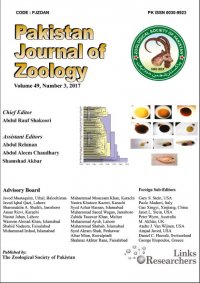Testosterone Enanthate Induces Cell Death in Human Colon (HCT) and Gastric (AGS) Cancer Cells
Testosterone Enanthate Induces Cell Death in Human Colon (HCT) and Gastric (AGS) Cancer Cells
Neda Amani1, Mehrdad Shariati1, Rahim Ahmadi2,3*, Mokhtar Mokhtari1 and Saeed Khatamsaz1
ABSTRACT
Cytotoxic effects of testosterone on cancer cells have been reported in recent studies, however, the molecular pathway is unclear. This study aimed to investigate the effects of testosterone enanthate on expression level of iNOS, MMP9 and caspase-3, -8 and -9 in human colon (HCT) and gastric (AGS) cancer cells. Cell lines were divided into untreated (control) group and groups exposed to 0.001, 0.01, 0.1, 1 and 10 mg/ml of testosterone enanthate. The cytotoxic effect of testosterone enanthate was measured using MTT assay method. iNOS, MMP9, caspase-3, -8 and -9 expression level were evaluated by real-time PCR and the caspases activity was measured by ELYSA method. Flow cytometry was used to detect and quantify the level of apoptosis in cell lines. The data were statistically analyzed between groups using ANOVA and student’s t-test. Decreased viability was observed in AGS and HCT cells exposed to 0.1 and 1 mg/ml of testosterone. Exposure of AGS and HCT cells to cytotoxic dose of testosterone enanthate led to significant increase in gene expression and activity level of caspase-3 and -9, but no significant change in iNOS, MMP9 and caspase-8 expression level. MMP9 expression level significantly decreased in HCT cells, however, did not change in AGS cells exposed to cytotoxic dose of testosterone enanthate. Treatment of HCT and AGS cells with testosterone enanthate induces intrinsic - and not extrinsic- apoptosis pathway.
To share on other social networks, click on any share button. What are these?









